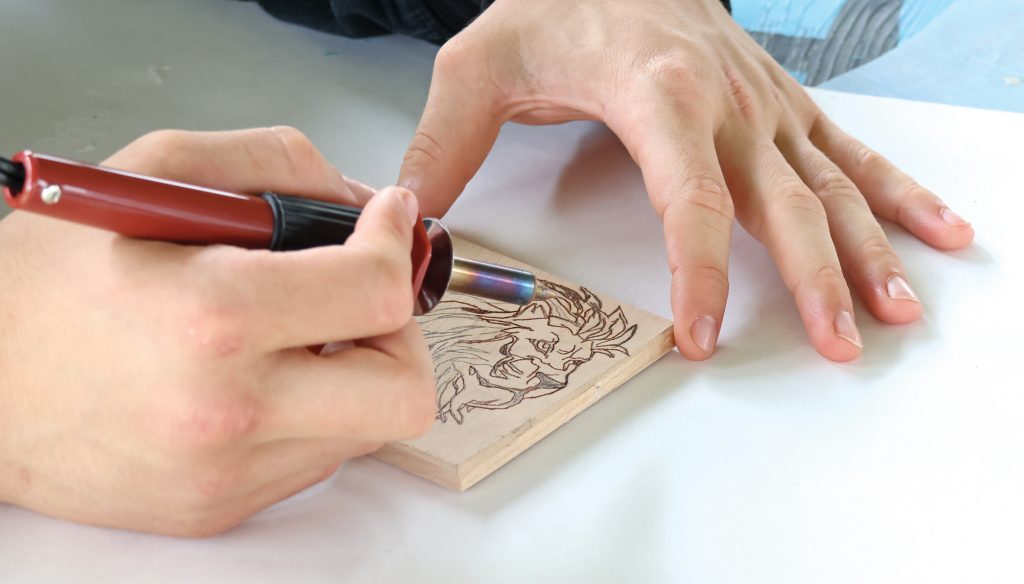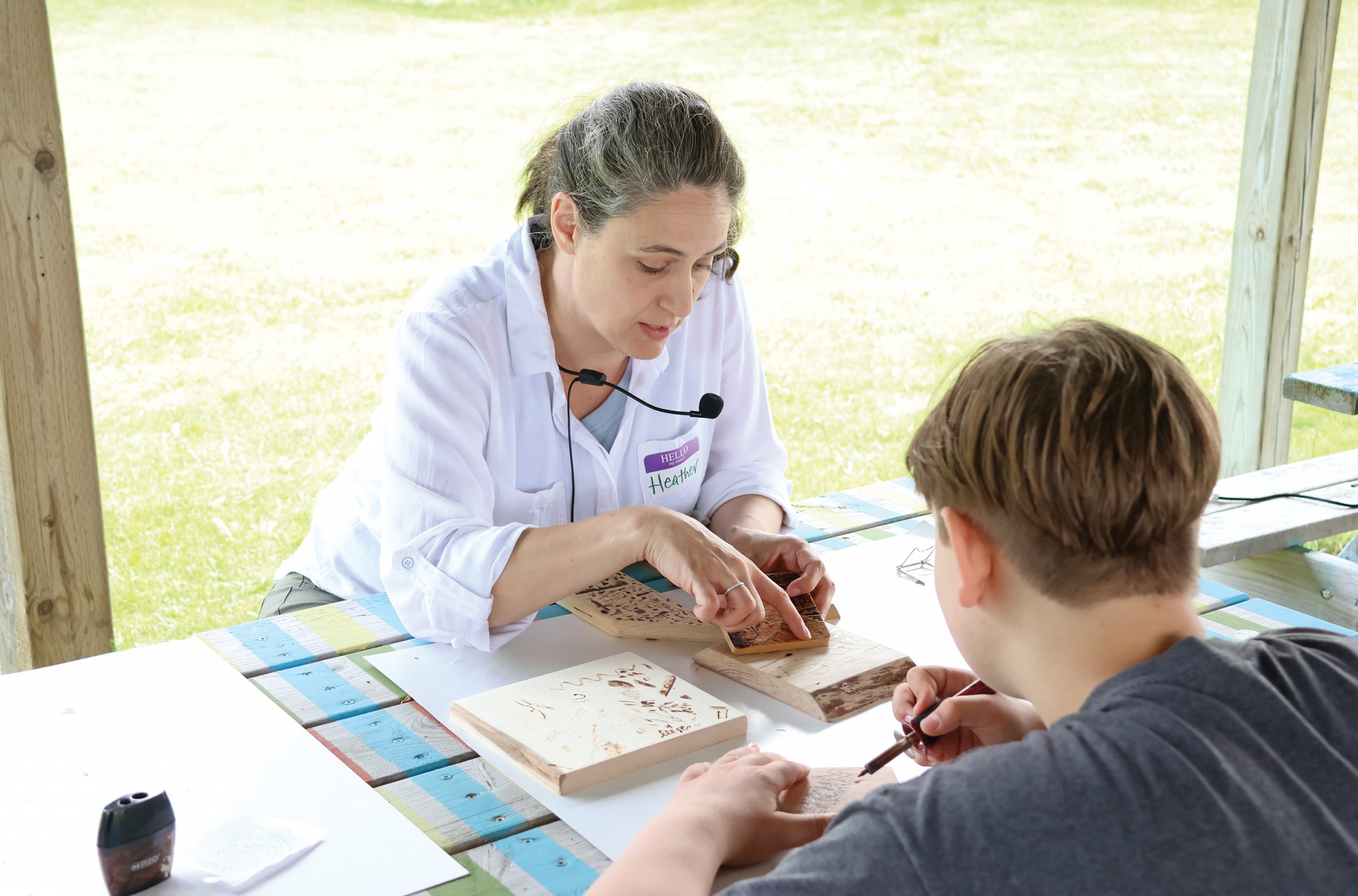CENTRE WELLINGTON – Teens staying at the Portage Ontario residential substance abuse rehabilitation centre in Elora are learning to make their mark thanks to a unique outreach program offered through the Elora Centre for the Arts (ECFTA).
It’s called the Youth Addiction and Recovery Program: The Power of Art and Creative Expression, and it sees local artists across a variety of media running workshops for Portage residents over 10 weeks in the spring and fall.
The teens, who range in age from 14 to 18, get to try their hands at painting, pottery, dance, photography, drumming and more.
“A lot of kids here are coming from places where they didn’t get options like this,” said one program participant.
The youth, whose name is being withheld for privacy reasons, had just completed a pyrography lesson with local artist Heather Martin of FireWork Designs, using a wood-burning tool to sketch the image of a frog on a wooden coaster.
The reverse of his piece was a single word – ENERGY – in stylized lettering diagonally across the cherry-wood square.
He seemed energized by the session, announcing, “I’m going to get a wood burner when I get out of here, and I’m going to get graffiti markers.”
Graffiti art was another art form the group of boys had a chance to try recently, and the Grade 9 youth said he is looking forward to creating a mural in his basement when his six months at Portage are up.
He admitted to hating visual art in school and failing Grade 9 music, but seemed to like taking part in the ECFTA program.
“Here, it’s more like you can do whatever you want,” he said, explaining the demands of his school art class were too rigid.
He added, “it’s a good way to do whatever you want in a healthy way.”

A student uses a special tool to burn a design into a wooden coaster during a pyrography workshop at Portage Elora.
Developing technical skills is not the goal of the program.
“The point here is just about expressing yourself; it has nothing to do with skills,” said ECFTA head of programming and education Judy Anderson.
The program, funded by the Dalglish Family Foundation and Skyline Group of Companies, is in its third year, but this is the first year the sessions have run on the Portage grounds.
Previously, residents made trips to the arts centre to participate in the workshops, but this year Anderson approached art teacher Jacqui O’Carroll about doing things the other way around.
The change has been a successful one.
“We’ve had almost 100 per cent attendance,” O’Carroll said.
She teaches with the Upper Grand District School Board, and works at Portage through the board’s Educational Community Partnership Program. It allows students staying at Portage to continue earning high school credits while working on their recovery.
“Our focus is to give them the capacity to go back into a community school and be successful,” said O’Carroll.
She had many positive things to say about the art centre’s Power of Art and Creative Expression program, noting it’s a great opportunity for community connection, a chance to try arts activities that many students don’t get to try, and a chance to take part in an arts class on a weekly basis.
“We’re really trying to get them to see that everybody can be an artist,” O’Carroll said, adding the program also encourages the teens to take up a hobby and to see themselves as welcome in arts spaces.
While the students get to participate on the Portage grounds, “we still like it if once or twice they can get over to the arts centre and see the exhibits,” said Anderson.
Centre arts educator and facilitator Stephanie Lines-Toohill explained it’s important the youths get a chance to visit to help foster a sense of belonging.
“We meet them as artists, not as addicts,” Lines-Toohill said. “We’re meeting them as artists, which helps them redefine who they are in the world.”
In a news release about the program, Portage Elora director Stacylee Jourdain said the program gives residents the chance to freely express difficult thoughts and emotions, and that can have a positive impact on recovery.
“Not only does it help them regain their confidence and self-esteem, but to have so many local artists come here and share their expertise with the residents shows them that there is a broader community of people out there who care about them and are willing to help,” she stated.
But it should be noted the program is not art therapy in a strict sense. If anything it might be described as a break from the intense therapy the teens are engaged in.
“Sometimes you carry your troubles like they’re weight,” said O’Carroll.
“This gives you release from it.”




